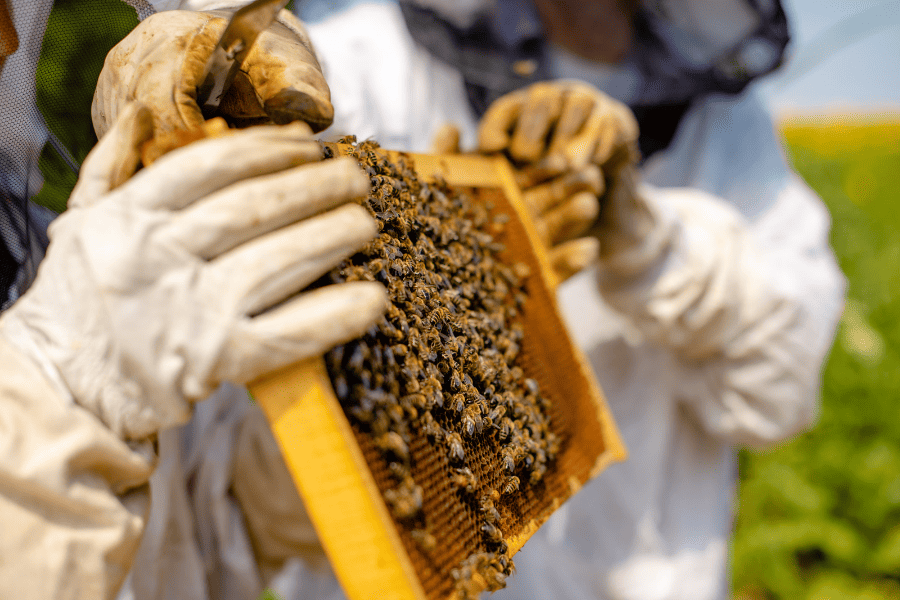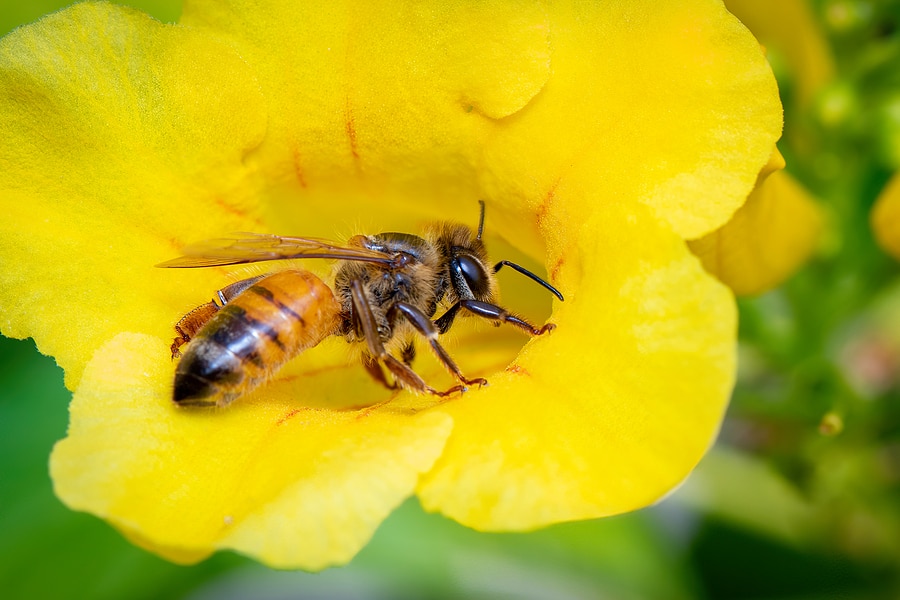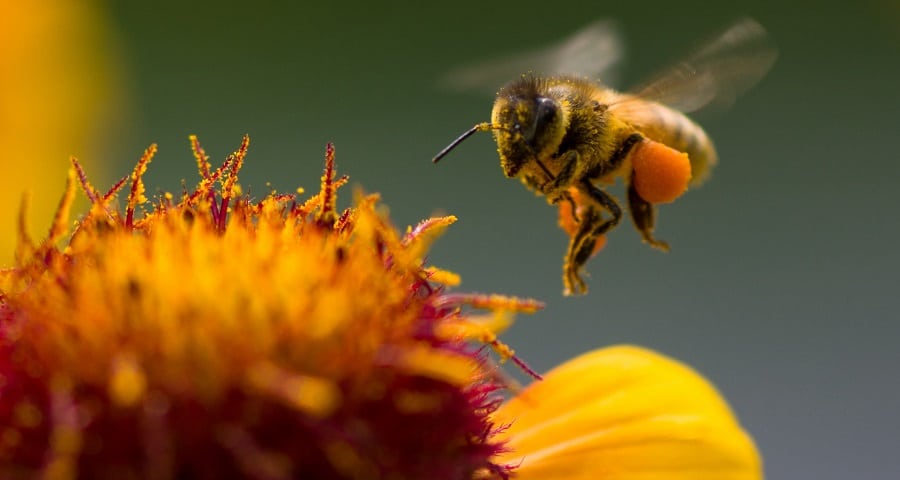READY TO GET STARTED?
REQUEST A FREE ESTIMATE
Fill out the form below or call (888) 466-7849 for a free, no-obligation estimate.

Honeybees are crucial to our ecosystem as they play a vital role in pollinating crops and other plants. Without honeybees, many of our favorite fruits and vegetables would become scarce, and the cost of these products could rise considerably. There have been concerns about the honeybee population and the impact their loss can have on the environment and the economy – this is where beekeepers come in! Beekeepers play a crucial role in ensuring the survival of the bee population. Let’s discuss their importance to honeybees and our community.
Beekeepers raise and manage bees to collect honey, beeswax, and other products. These bee experts help maintain healthy bee colonies by providing them with proper nutrition, shelter, and even medical care. One of the essential roles of beekeepers is to help maintain the bee population by preventing the spread of diseases that can be fatal to bees. They also play a critical role in controlling pests and predators that threaten bee colonies.
Beekeepers are essential in maintaining balance in the ecosystem. Since honeybees play a vital role in pollinating crops, our beekeepers help ensure that their pollination happens efficiently. By maintaining healthy bee colonies, beekeepers can ensure that the bee population can continue to thrive and that the plants that rely on them for pollination can continue to grow and produce the food that we rely on.
Having honeybees around our flowers and plants is always beneficial to your garden, crops, and the environment around us. Unfortunately, though, honeybees can sometimes build their colony in inconvenient places, such as our walls, eaves, and roofs. Luckily, Honeybee Relocation Services provides a safe and sustainable solution to remove and relocate these insects from our homes without harming them or damaging your home. If you’ve noticed a honeybee hive, consider contacting your local pest control company for more information on relocating these pollinators.

Honeybees have a significant role within our environment, the food we eat, the flowers we plant, and so much more. They are extremely hardworking and support so much of the sustenance of life. There are many reasons why honeybees and their honey are so important to humans; find out why below!
To look for pollen, honeybees will travel long distances. Through these trips, fertilization takes place between food crops. They do this by using the hairs on their bodies to carry large grains of pollen between plants, helping crops produce better. In the US alone, honeybees are known to pollinate more than 100 crops! Because of their pollination, we can enjoy foods like cucumbers, cherries, apples, limes, and lemons. These insects also pollinate our wild plants, helping provide food to a wide variety of insects, birds, and animals, and overall, playing a major component in our biodiversity.
Honeybees carry nectar extracted from plants and taken back to their hive. They create honey by mixing this nectar with their saliva in a cell within their hive. Honey is known to provide immense benefits to humans and our health. It’s been found that honey can prevent cancer, heart disease, and diabetes, heal wounds, and fight bacteria! There are also several products made from honey that can support us overall. The most common products we often see come from honey, including bee pollen for health benefits and bee wax for skin care products, candles, and even furniture polish!
The importance of honeybees is significant to our environment and overall well-being. At Northwest, we are proud to offer our honeybee relocation and protection services to continue keeping honeybees active and alive! Our Certified Honeybee Keepers are trained to safely remove, relocate, and care for the honeybees that have found their home in yours! If you’re interested in Northwest’s Honeybee Relocation & Protection Service, call our team today for a free inspection!

Due to their role in pollination, honeybees are extremely beneficial to our entire environment. This bee species contributes to the growth and reproduction of plants, where one bee can pollinate up to 1,000 flowers per day! It’s important to know what benefits these insects bring to us and how we can best protect them going forward.
Honeybees are big money makers for U.S. Agriculture, producing six hive products – honey, pollen, royal jelly, beeswax, propolis, and venom – which are all collected for various nutritional and medicinal purposes.
The production of honey from honeybees is extremely beneficial to the environment. According to the U.S. Department of Agriculture’s National Agriculture Statistics Service, honeybees made 157 million pounds of honey in 2019. With the cost of honey at $1.97 per pound, that’s a value of a little over $339 million. Honeybees are seen as a big contributor to the pollination of crops and contribute up to $15 billion in added crop value.
Unfortunately, a widespread bacterial disease called American foulbrood is destroying entire colonies of honeybees. The disease does not pose any risks to humans but can severely impact the bee population. An antibiotic has been created to treat colonies and prevent the spread between colonies. The antibiotic is considered a better option over burning and destroying entire hives.
Honey is not only important for the environment, but it can also be useful in our everyday lives! There are many ways to use honey. Although not scientifically proven, many people believe honey has medicinal benefits. Honey can also aid in fighting seasonal allergies, especially if the honey is produced locally.
Although honeybees are crucial for the environment, some people can be a little wary of having them near their homes. Protecting these insects is important for the environment, and it’s recommended that the first and only treatment for these bees is removing and relocating them and their hives by local beekeepers. If you notice you have a honeybee colony on your property, reach out to a local pest control company that can provide safe relocation for these insects.